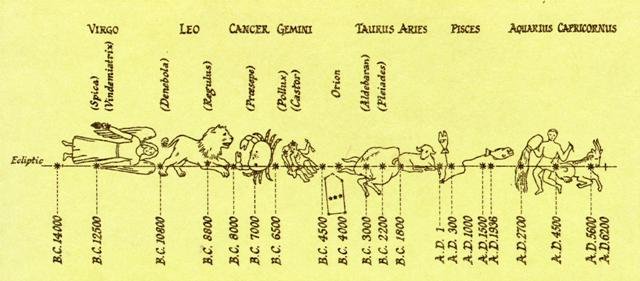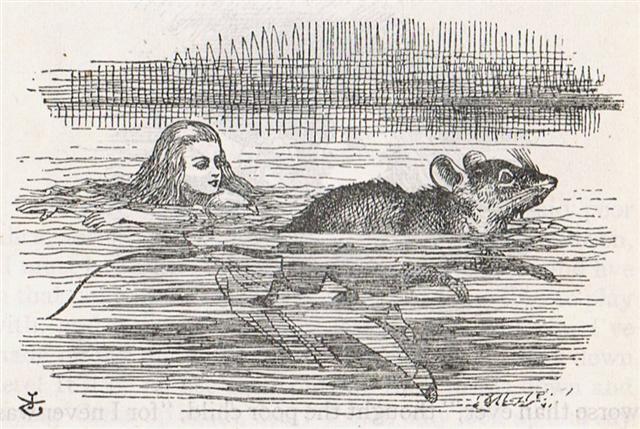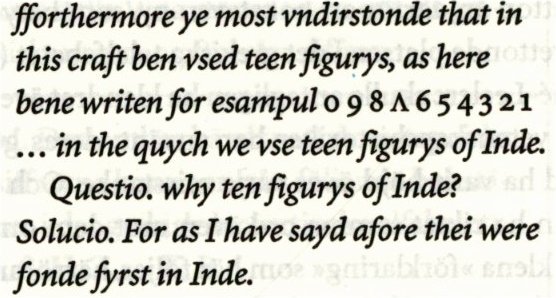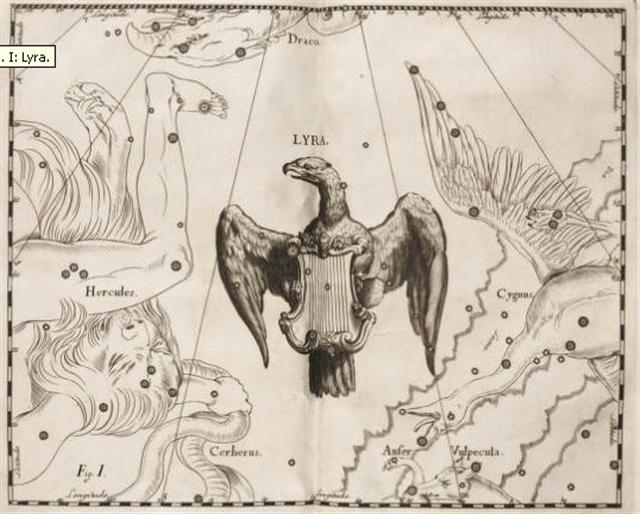The vernal equinox (and all the other Sun points in time)

slowly crept earlier and earlier among the stars through the ages

due to the precession
.jpg)
although the assembly of the fixed stars remained as evidence of where the
cardinal points of the Sun once had been in ancient times.
| e vaha noho
ragi |
erua ahi |
i te hau tea |
Erua hau tea |
i te henua i
te rima |
|
Ahi.
Fire; he-tutu i te ahi to
light a fire. Ahiahi = evening;
ahiahi-ata, the last moments of light before
nightfall. Vanaga. 1. Candle, stove, fire (vahi);
ahi hakapura, match; ahi hakagaiei,
firebrand waved as a night signal. P Mgv.:
ahi, fire, flame. Mq.: ahi, fire,
match, percussion cap. Ta.: ahi, fire,
percussion cap, wick, stove. 2. To be night;
agatahi ahi atu, day before yesterday. 3.
Pau.: ahi, sandalwood. Ta.: ahi,
id. Mq.: auahi, a variety of breadfruit.
Sa.: asi, sandalwood. Ha.: ili-ahi,
id. Ahiahi, afternoon, night; kai
ahiahi, supper. P Pau., Mgv., Mq., Ta.:
ahiahi, afternoon, evening. Ahipipi (ahi
1 - pipi 2) a spark, to flash. Churchill. |
 |
 |
 |
 |
 |
 |
 |
|
Ca5-32 (137) |
Ca5-33 |
Ca5-34 |
Ca5-35 |
Ca6-1 |
Ca6-2 |
Ca6-3 |
|
CLOSE TO THE SUN: |
|
Febr 4 |
5 |
6 |
7
(403) |
8 |
9
(40) |
10 |
|
... On
February 9 the Chorti Ah K'in,
'diviners', begin the agricultural year. Both
the 260-day cycle and the solar year are used in
setting dates for religious and agricultural
ceremonies, especially when those rituals fall
at the same time in both calendars. The ceremony
begins when the diviners go to a sacred spring
where they choose five stones with the proper
shape and color. These stones will mark the five
positions of the sacred cosmogram created by the
ritual. When the stones are brought back to the
ceremonial house, two diviners start the ritual
by placing the stones on a table in a careful
pattern that reproduces the schematic of the
universe. At the same time, helpers under the
table replace last year's diagram with the new
one. They believe that by placing the cosmic
diagram under the base of God at the center of
the world they demonstrate that God dominates
the universe. The priests place the stones in a
very particular order. First the stone that
corresponds to the sun in the eastern, sunrise
position of summer solstice is set down; then
the stone corresponding to the western, sunset
position of the same solstice. This is followed
by stones representing the western, sunset
position of the winter solstice, then its
eastern, sunrise position. Together these four
stones form a square. They sit at the four
corners of the square just as we saw in the
Creation story from the Classic period and in
the Popol Vuh. Finally, the center stone is
placed to form the ancient five-point sign
modern researchers called the quincunx ...
 |
|
DRAMASA
=
σ
Oct.,
χ
Capricorni (320.0),
ν
Aquarii (320.3),
γ
Equulei (320.6),
ο
Pavonis (320.8) |
α Oct. (321.5), δ
Equulei (321.7),
φ
Capricorni (321.8) |
KITALPHA (Part of a Horse) =
α
Equulei
(322.0),
ALDERAMIN (The Right Arm) =
α
Cephei
(322.9) |
DAI =
ι
Capricorni
(323.5),
β
Equulei (323.8) |
γ
Pavonis (324.1),
YAN =
ζ
Capricorni
(324.6) |
Al Sa'd al Su'ud-22 (Luckiest of the Lucky) /
Emptiness-11 (Rat)
TSIN = 36 Capricorni
(325.2),
ALPHIRK (The Flock) =
β
Cephei
(325.7),
SADALSUD
=
β
Aquarii,
ξ
Gruis (325.9) |
no
star listed (326) |
 |
|
DAY
320 |
321 |
322 |
323 |
324 |
325
(→ 3-25) |
326 |
|
CLOSE TO THE
FULL MOON: |
|
Aug
5 |
6 |
7 |
8
(11 * 20 → T20) |
9 |
10 |
11 |
|
9h (137.0)
σ╣ Ursa Majoris (137.0), κ Cancri (137.3), τ
Cancri (137.4),
ALSUHAIL (al Wazn, of the Weight) = λ Velorum
(137.5), σ▓ Ursa Majoris (137.6), τ Ursa Majoris
(137.7), ξ Cancri (137.8)
*96.0 = *137.4 - *41.4 |
κ Pyxidis (138.0), ε Pyxidis (138.5) |
π
Cancri (139.2),
MIAPLACIDUS =
β
Carinae
(139.3),
TUREIS (Little Shield) =
ι
Carinae
(139.8) |
no star listed (140) |
θ
Pyxidis (141.5),
MARKAB VELORUM =
κ
Velorum
(141.5),
AL MINHAR AL ASAD (The Nose of
the Lion) =
κ
Leonis
(141.6),
λ
Pyxidis (141.9) |
Star-25 (Horse) /
ANA-HEU-HEU-PO-5 (Pillar where debates were
held)
ALPHARD (The Horse) =
α
Hydrae
(142.3),
ω
Leonis (142.6),
τ╣
Hydrae (142.7) |
Al Tarf-7 (The End)
ψ
Velorum (143.3),
ALTERF = λ Leonis,
τ▓
Hydrae (143.4),
ξ
Leonis (143.5)
*102.0 = *143.4 - *41.4 |
|
'July 9 |
10 |
11 |
(193 →
Castor) |
13 |
14 |
(196 →
Pollux) |
|
DAY
137 |
138 |
139 |
140 |
141 |
142 |
143
(= 11 * 13) |
When the Sun reached Al-Terf (λ Leonis) it was
time to tie a knot (Ukdah) in order to indicate
where once upon a time the rule of the Old Lion had ended.
|
Egyptian
menchet |
 |
Phoenician
lamedh |
 |
Greek
lambda |
Λ (λ) |
|
... Wikipedia has no
information regarding the origin of the
Phoenician lamedh, but the Egyptian
'cloth' hieroglyph (menchet) is - I
suggest - related to the 4 upside down sky
pillars. I.e. the basic element of the
'covering' hieroglyph could have indicated
darkness:


... Men's
spirits were thought to dwell in the Milky
Way between incarnations. This conception
has been handed down as an Orphic and
Pythagorean tradition fitting into the frame
of the migration of the soul. Macrobius, who
has provided the broadest report on the
matter, has it that souls ascend by way of
Capricorn, and then, in order to be reborn,
descend again through the 'Gate of Cancer'.
Macrobius talks of signs; the
constellations rising at the solstices in
his time (and still in ours) were Gemini and
Sagittarius: the 'Gate of Cancer' means
Gemini ...


From the year 755 (when
Cancer had been at July 11 according to the
Mayas) to AD 1842 (my assumed baseline for
the rongorongo texts) there were around
(1842 - 755) / 71 = 15 precessional days.
This seems to point to the time of the Bull,
when in JANUARY 31 the old year would end
(terminate). 192 (JULY 11) - 31 = 161 (JUNE
10):
...
Midsummer is the flowering season of the
oak, which is the tree of endurance and
triumph, and like the ash is said to 'court
the lightning flash'. Its roots are believed
to extend as deep underground as its
branches rise in the air - Virgil mentions
this - which makes it emblematic of a god
whose law runs both in Heaven and in the
Underworld ... The month, which takes its
name from Juppiter the oak-god, begins on
June 10th and ends of July 7th. Midway
comes St. John's Day, June 24th, the day on
which the oak-king was sacrificially burned
alive. The Celtic year was divided into two
halves with the second half beginning in
July, apparently after a seven-day wake, or
funeral feast, in the oak-king's honour
...
... The Fijian barkcloth
that in the end captures the chief
represents his capture of the land: upon
installation, he is said to hold the
'barkcloth of the land' (masi ni vanua). The
barkcloth thus has deeper significance. In
general ritual usage, barkcloth serves as
'the path of the god'. Hanging from the
rafters at the rear, sacred end of the
ancient temple, it is the avenue by which
the god descends to enter the priest ...
There is still more to the barkcloth. The
barkcloth which provides access for the
god/chief and signifies his sovereignity is
the preeminent feminine valuable (i yau)
in Fiji. It is the highest product of
woman's labor, and as such a principal good
of ceremonial exchange (soolevu). The
chief's accession is mediated by the object
that saliently signifies women ... |
Counted from λ Leonis
to
Sadalsud (The Luckiest
of the Lucky, β Aquarii) there was half a year. 364
("December 30) - 181 ("June 30) = 366 / 2.
Sirius culminated (at 21h)
half a year before the arrival of the corresponding right ascension
line for Vega:
 |
 |
 |
 |
 |
 |
|
Ga3-19 (78) |
Ga3-20 |
Ga3-21 (→ 0h) |
Ga3-22 |
Ga3-23 |
Ga3-24 |
|
CLOSE TO THE SUN: |
|
The
Knot (Ukdah) |
Rishu A.-13 (Head of the Lion)
ψ Leonis (146.4),
RAS ELASET AUSTRALIS = ε Leonis
(146.6)
*105.0 = *146.4 - *41.4 |
VATHORZ PRIOR =
υ
Carinae
(147.9) |
|
Star-25 (Horse) /
ANA-HEU-HEU-PO-5 (Pillar where debates
were held)
ALPHARD (The Horse) =
α
Hydrae
(142.3),
ω
Leonis (142.6),
τ╣
Hydrae (142.7) |
Al Tarf-7 (The End)
ψ
Velorum (143.3),
ALTERF = λ Leonis,
τ▓
Hydrae (143.4),
ξ
Leonis (143.5)
*102.0 = *143.4 - *41.4 |
A Hydrae (144.1)
VEGA (α Lyrae) |
UKDAH
(Knot) = ι Hydrae
(145.4), κ Hydrae (145.5),
SUBRA = ο Leonis
(145.8)
*104.0 = *145.4 - *41.4 (= *288 - *184)
|
|
Aug 10 |
11 |
12 |
13 |
14 (*146) |
15 (227) |
|
░Aug 6 |
7 |
8 (220) |
9 |
10 |
11 (*143) |
|
'July 14 |
15 |
16 |
17 (*118) |
18 |
19 (200) |
|
SIRIUS |
"July 1 |
2 |
3 (*104) |
4 (185) |
5 |
|
JUNE 7 (*78) |
8 |
9 |
10 (161) |
11 |
12 |
|
DAY 142 |
143 |
144 (= 12 * 12) |
145 |
146 |
147 |
|
CLOSE TO THE FULL MOON: |
|
BUNDA
(Foundation) / KAKKAB
NAMMAΧ (Star of Mighty Destiny) |
θ
Piscis Austrini (330.1),
λ
Oct.
(330.7) |
|
Al Sa'd al Su'ud-22 (Luckiest of the
Lucky) /
Emptiness-11 (Rat)
TSIN = 36 Capricorni
(325.2),
ALPHIRK (The Flock) =
β
Cephei
(325.7),
SADALSUD
=
β
Aquarii,
ξ
Gruis (325.9) |
no star listed (326) |
CASTRA = ε Capricorni (327.2),
BUNDA = ξ Aquarii
(327.5)
SIRIUS (α Canis Majoris)
|
Mahar sha hi-na Shahū-26 (Western One in
the Tail of the Goat)
NASHIRA =
γ
Capricorni
(328.0),
ν
Oct. (328.3), AZELFAFAGE
=
π╣
Cygni,
κ
Capricorni (328.7 |
Arkat sha hi-na Shahū-27 (Eastern One in
the Tail of the Goat)
ENIF (The Nose) =
ε
Pegasi, ERAKIS =
μ
Cephei
(329.2),
46 CAPRICORNI,
JIH (the Sun) = κ
Pegasi
(329.3),
ι
Piscis Austrini (329.4),
λ
Capricorni (329.6),
ν
Cephei (329.7),
DENEB ALGIEDI
=
δ
Capricorni
(329.8)
*288.0 = *329.4 - *41.4 |
|
Febr 9 (40) |
10 |
11 |
12 (408) |
13 (*329) |
All Hearts' Day |
|
░Febr 5 |
6 |
7 |
8 (*324) |
9 (40) |
10 |
|
'Jan 13 (378) |
14 |
15 (*300) |
16 |
17 |
18 (383) |
|
"Dec 30 |
31 (*285) |
"Jan 1 |
2 |
3 (368) |
4 |
|
DEC 7 |
8 |
9 |
10 |
11 (345) |
12 (*266) |
|
DAY 325 (→ 3-25) |
326 |
327 |
328 |
329 |
330 |

|


.jpg)









